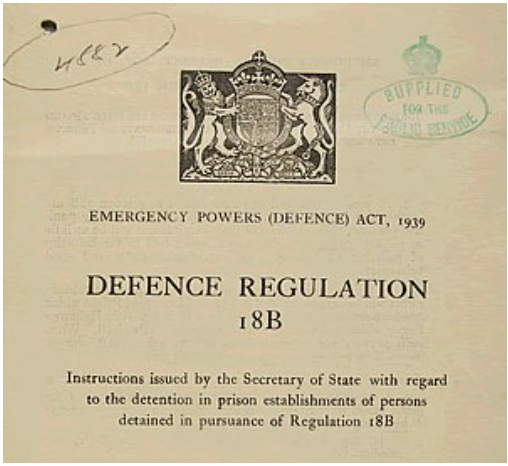

An Unnecessary
Tragedy
Alfonso Pacitti
A War Crime?
Four hundred and forty-six Italian males lost their lives on the Arandora Star. A further 419 POWs, internees, crew and guards also perished. Most of the internees were civilians who had made their homes in the UK in the early 1900s and many of them were so deeply integrated into their local communities that they had sons and other relatives serving in the British Armed Forces.
The internees were assigned no rights and were denied even the basic rights allowed to prisoners under the Geneva Convention. Many were robbed of their valuables whilst in internment. There was no formal communication by the government to relatives of the internees. They were not advised of what became of their husbands, brothers or fathers after their arrest in early June 1940. Furthermore, under Government regulations, families of many of the internees were forced to leave their homes and seek refuge outwith the main cities. These were wives and children with no home, no means of support, and no assistance whatsoever. Many internees were shipped overseas and their families, unaware of the fact, received no notification.
The Arandora Star sailed without convoy, was grossly overloaded and with no regard to the capacity of the ship's lifeboats. Indeed it was only the protest of the Captain, Edgar Moulton, that prevented the late attempted addition of a further 500 internees shortly before the ship sailed. The ship put to sea with 80 percent of the crew newly signed on and with no maritime skills. Neither the crew, the military guards nor the internees were given any emergency drill or instruction.
The ship had been overpainted in battleship grey, had guns installed and had the appearance of a troop carrier. Crucially, it did not carry any Red Cross or other means of identification as required by the Geneva Convention to indicate that it was carrying mainly civilians. The lifeboats had been secured behind heavy wire mesh. The number of lifeboats were grossly inadequate, designed for the ship's maximum complement of only 500 passengers.
The internees were harshly treated and held in overcrowded conditions. Many of the Italians, sleeping on the ballroom floor, were severely injured when the large mirrors on the ceiling broke after the torpedo struck and the vessel foundered.
The survivors of the Arandora Star were again harshly treated when brought ashore. Despite their ordeal, most were immediately put on board other ships for internment in Australia. Their families were not informed and they again suffered further maltreatment, insanitary conditions and theft of personal belongings.
The UK Government has never made any apology or compensation to the Arandora Star victims. In contrast, the American government, having similarly interned many Japanese civilians during the war, subsequently made an apology and made a payment of compensation to each and every on. As far as can be ascertained, no Japanese civilians suffered loss of life resulting from internment by the American authorities.
After the incident, questions were asked in cabinet and despite some pushback from Churchill and Eden, Lord Snell was charged with conducting an inquiry into the tragedy. He recognised that the method of selecting ‘dangerous’ Italians was not satisfactory. The report, hiding many ineptitudes, has never been published but the laughable conclusion was that, despite the tragedy, the officers in charge of internments ‘had done a good job.’ As one other commentator recorded wryly in Parliament:
“the whitewash has been laid on thickly but some of the bones are still sticking out.”


